A storyteller, a scholar, a powerful agent for change
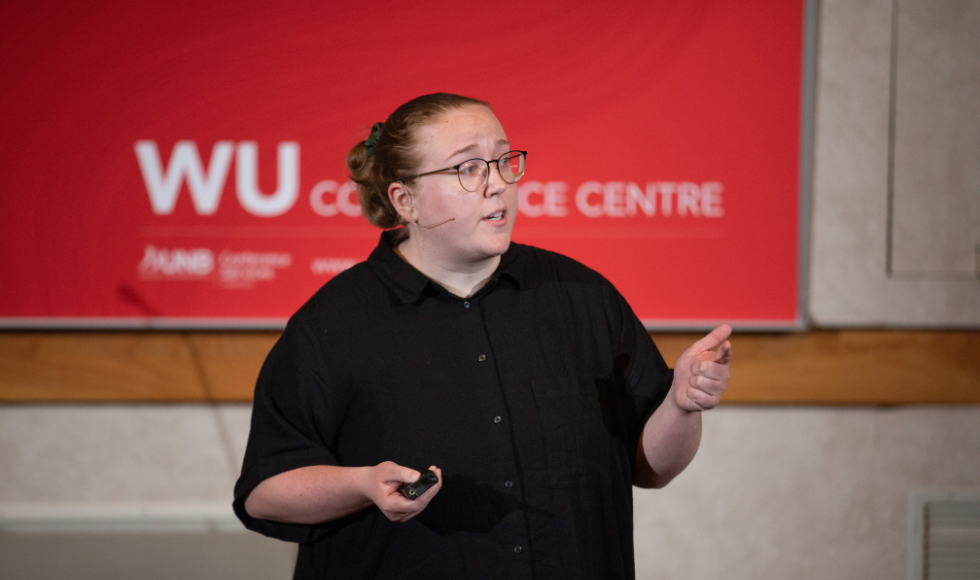
Maddie Brockbank is Vanier scholar, PhD student in Social Work, and recent winner of the 2025 Storytellers Challenge.
How do you sum up nearly 10 years of research in three minutes?
That was the problem faced by Maddie Brockbank, Vanier scholar and PhD student in Social Work, when she entered the 2025 Storytellers Challenge.
The challenge has scholars from across Canada communicate their research in 300 words or three minutes.
Brockbank travelled to Fredericton for the finals in June to present her research, From Harm to Healing: Co-Designing a Gender-Based and Sexual Violence Prevention Framework for and with Men. She came home with the top prize.
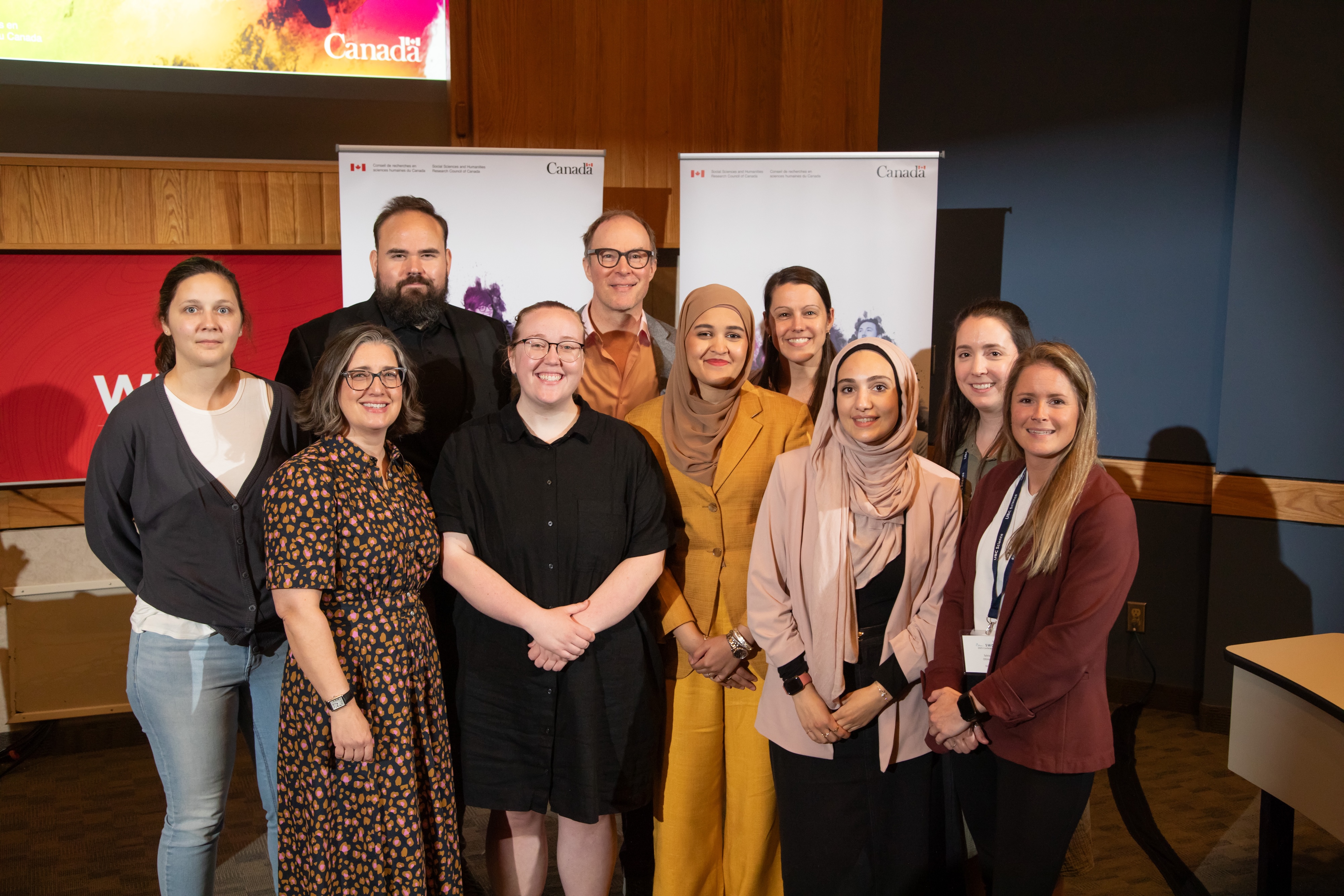
The achievement comes on the heels of more big news for Brockbank: after 10 years at McMaster — she attended for her undergrad, master’s and now doctorate — she’s leaving to start a new role as an assistant professor at the University of Windsor.
Community research
Brockbank always pictured herself in academia. When picking her university, she remembers being really struck by the work that was happening on McMaster’s campus.
“It felt like McMaster had established itself as such a research-intensive university, renowned for doing important work in the community,” she said. “I really admired the folks in social sciences who were studying issues that I really cared about.”
Issues like the criminalization of HIV, constructions of women in psychiatry, and violence against women — all of which she got to learn about in an undergraduate course on feminist social work.
But early on, Brockbank noticed something missing from conversations on gender-based and sexual violence — men.
“If men are overrepresented as perpetrators of this issue, why are they not responsible for addressing it?”
She talked about it with her professor and mentor, Saara Greene, who said it sounded like a research question and encouraged her to apply for the undergraduate student research award.
When she got it, Greene supervised her work on how to better engage men and boys in conversations about gender-based and sexual violence.
By the time she finished her undergrad, Brockbank had already built a community around this work, and knew she wanted to keep it going. She went straight into a Master in Social Work at McMaster; after she finished that, she went right into her PhD.

Her doctoral project has used a participatory method to work with men, specifically post-secondary students, to co-design a framework for engaging other men in conversations about gender based and sexual violence.
The work was overseen by a community advisory board of anti-violence service providers in the community. “It felt like such an amazing opportunity to bring all those folks that I’ve worked with over the years into my dissertation, to be able to help shape what we produced,” Brockbank said.
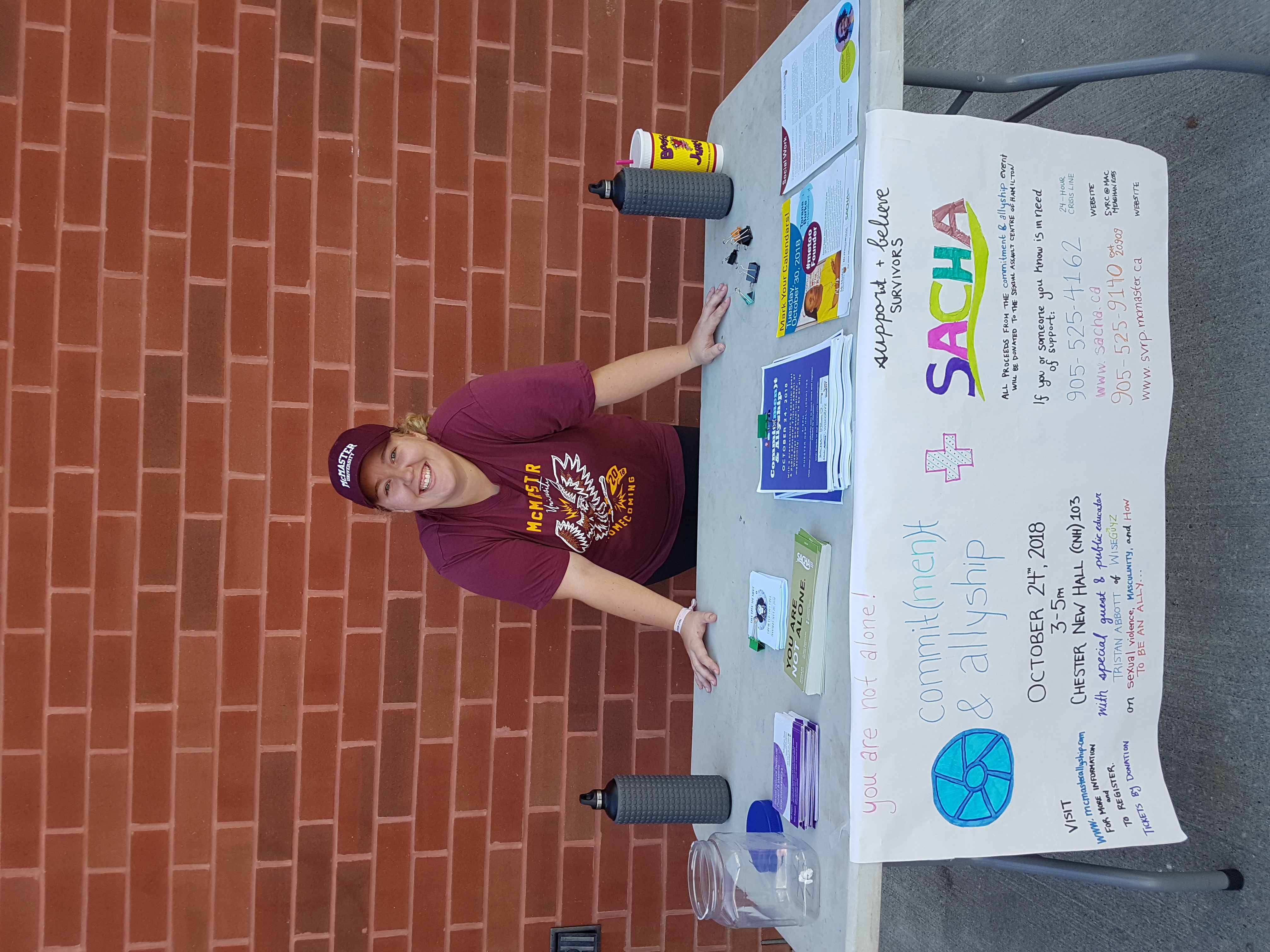
Summarizing all of this work was the topic of her three-minute speech at the Storytellers Challenge, which was organized by the Social Sciences and Humanities Research Council (SSHRC).
Brockbank is very familiar with SHHRC – her master’s and PhD research were SHHRC funded — through a Canada Graduate Scholarship for her master’s and a Vanier Scholarship for her PhD — and had watched the Storytellers Challenge for years.
She decided to take part this year both to showcase the research she’d been working on, and to push herself to translate that knowledge for a general audience.
“This is such exciting research that I really want people to hear about it,” she said. “I’m pretty wordy in my way of explaining things… you don’t want it to be disengaging just by the way you’re explaining it.”
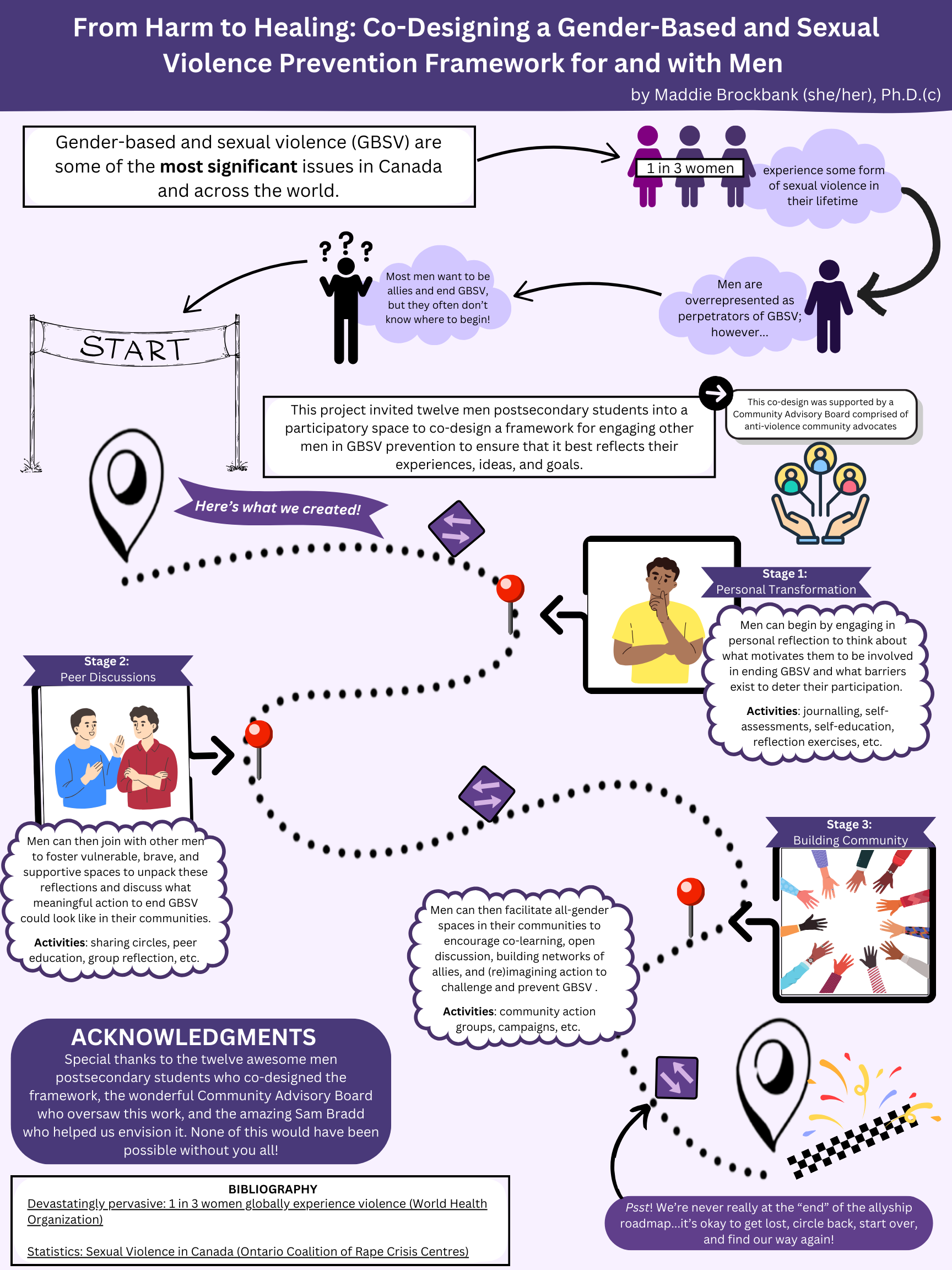
A piece of advice she heard, early on, was to embrace the heart of the competition: tell a story.
She drew on her many years of public education and anti-violence work with men, and told a story about a young man she’d spoken to.
When she first met him, he said the typical things: He would never perpetrate violence against women. His friends engaged in locker room talk, but that’s all it was. He didn’t see why he needed to be part of the conversation.
A year later, he told Brockbank that one of his friends had sexually assaulted somebody at a party.
“He was just absolutely reeling and felt like he didn’t think about this stuff until it was too late,” Brockbank said. “And then he tried to talk to another friend about it and the other friend also disclosed an experience of sexual violence.”
“He was just very much lost.”
She used this story to illustrate why men need to be involved in this work, and why it’s essential we understand what’s disengaging them from getting involved.
“I felt like it was really important to tell a story of an everyday guy,” Brockbank said. “A guy that people are in community with, not this random perpetrator that we imagine.”
The young man eventually sent Brockbank an email, saying that he didn’t realize that not being the problem wasn’t enough — you had to be part of the solution.
Next chapter
Brockbank starts her new role in Windsor this summer and plans to defend her PhD research in the fall. “I have to keep saying that out loud,” Brockbank said.
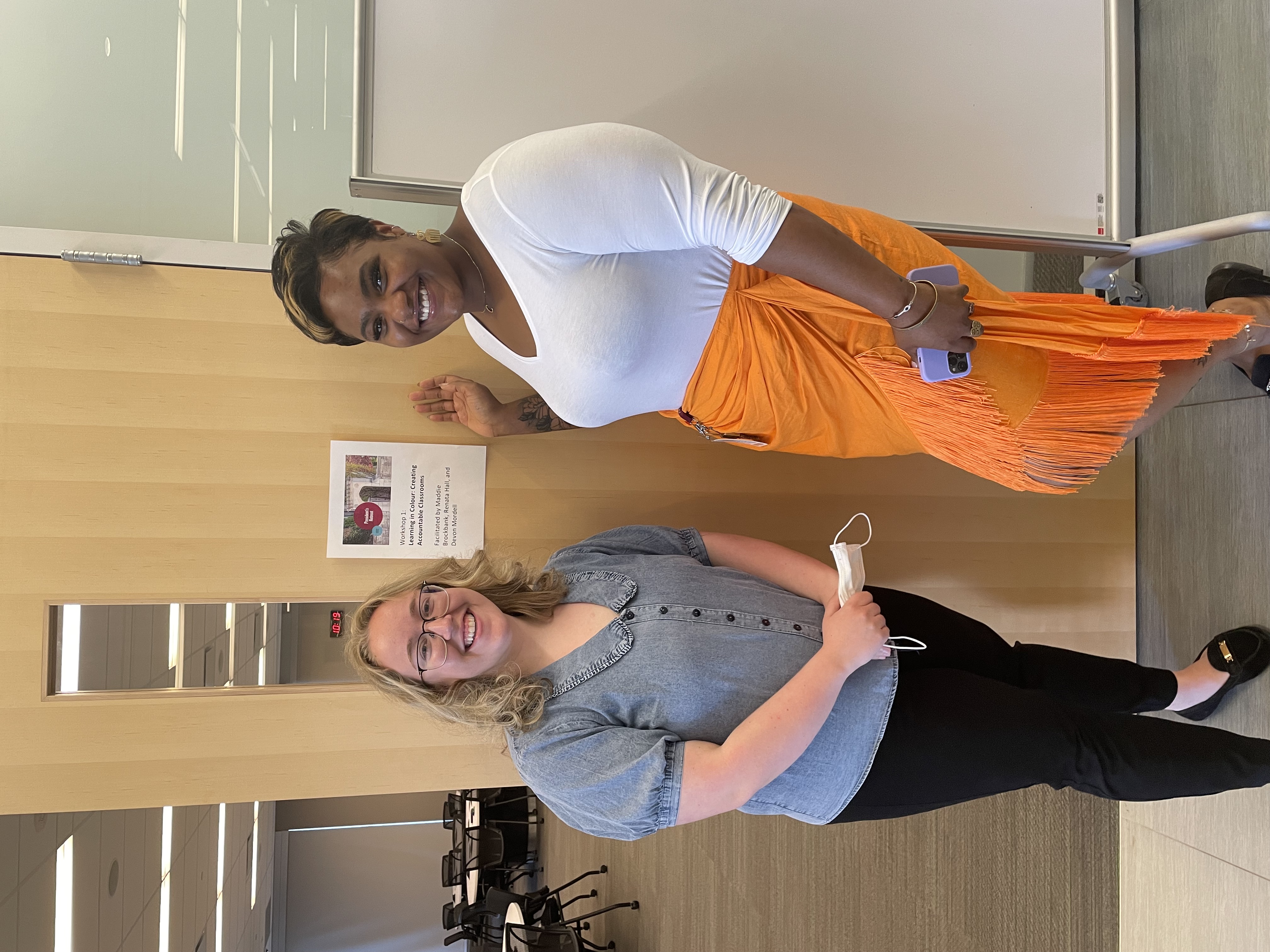
It feels surreal to be leaving McMaster, which has fostered in her a lifelong curiousity and a love of shared learning, she said.
“There’s just been so many opportunities throughout my student tenure to learn from folks about how to do this better,” she said. “There’s always a workshop. There’s always a community of practice. There’s always something going on.”
McMaster is “notoriously amazing,” she said, particularly when it comes to people helping each other out. “If I have a question and the person I’m asking doesn’t have the answer, they will find that person and make that connection.”
As a sessional instructor in the Faculty of Social Science, she’s loved being that person for students, too.
“It’s really cool to see students I’ve worked with who are now going on and doing really important things,” she said. Whether it’s community building work, or interrogating the systems and structures that create conditions where oppression and violence can happen, “we’re all interconnected in that pursuit of social justice and we’re all taking it up a little bit differently.”
She shares a favourite quote by Angela Davis: “I hope we keep imagining futures we haven’t seen yet.”
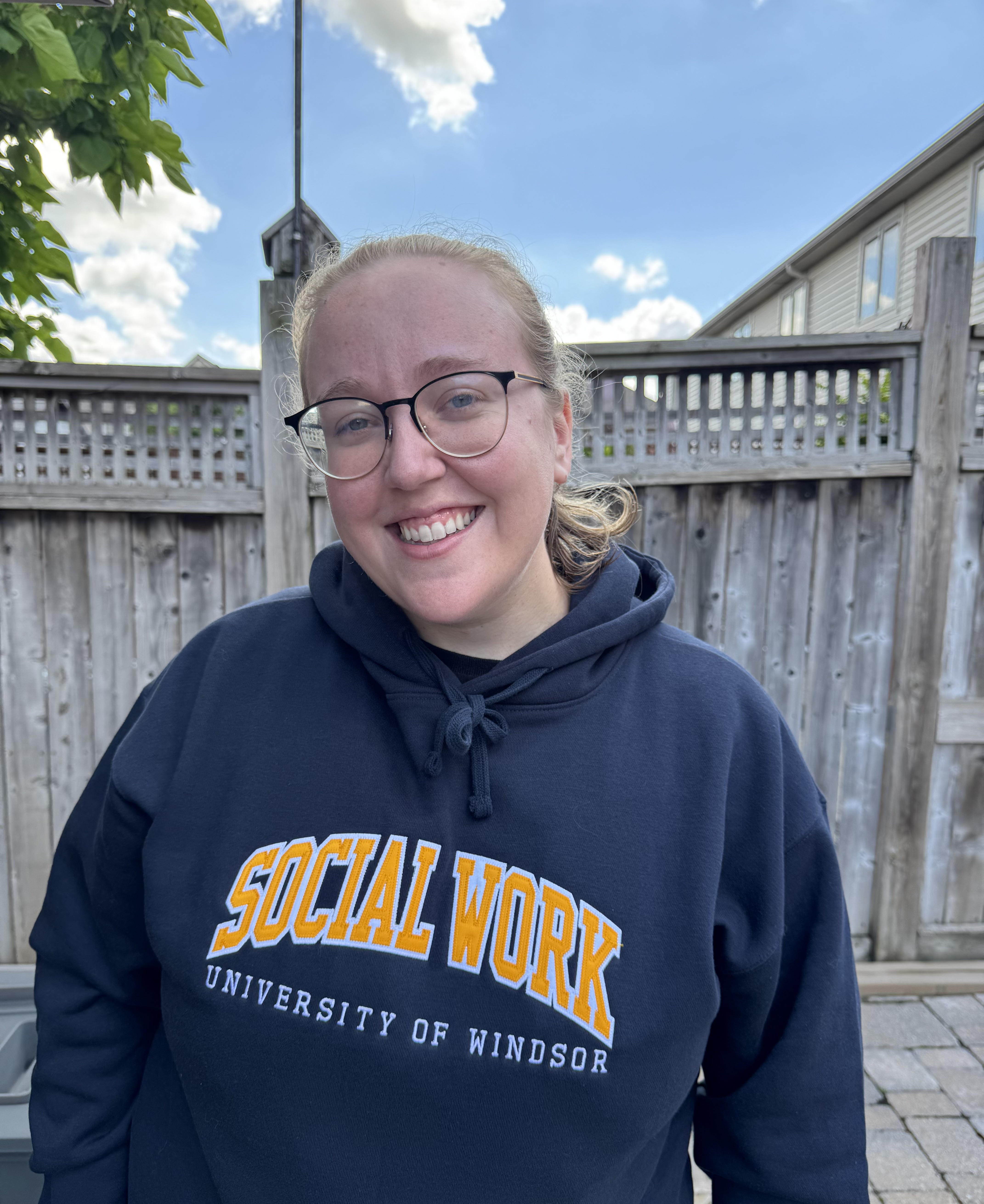 Being new at Windsor is going to feel strange after the community she built here in Hamilton. Leaving is “kind of sad, but it’s exciting.”
Being new at Windsor is going to feel strange after the community she built here in Hamilton. Leaving is “kind of sad, but it’s exciting.”
“As much as it’s taking me away from Mac, I’m going to do everything I can to keep coming back,” she said.
“I’ve already been sending emails to people, like, hey, do you want to work together now?”


